Remigration and Brain Gain
Remigration and Brain Gain
The research team at SSE Riga and BICEPS is working on a three-year project on the 'brain drain – brain gain' process for the Baltics, in particular Latvia, by studying human capital gain and loss resulting from mobility.
Latvia has exhibited the fastest depopulation rate in the world; since 2000, the Latvian population has shrunk by 18% to around 1.9 million people due to a combination of low birth rates and emigration.
With an estimated 259 000 people who emigrated from 2000-2013 and have not returned, it should be no surprise that remigration has emerged as a topic of national interest – in particular in the aftermath of the financial crisis. Lithuania is experiencing similar trends, while Estonia only recently reversed the trend to positive net migration.
The increased focus on remigration is not unique to the Baltics. After Central and Eastern European countries’ accession to the EU and the financial crisis that motivated people to leave their countries for work or educational reasons, their return has been identified as a way to reverse brain drain and turn migration into a source of brain gain.
When migrants return, the skills, experiences and networks they bring back constitute net human capital gains, often described as brain gain. The assets that return migrants carry include work and study experience in a different environment, languages, innovations, advanced technology skills, foreign contacts, entrepreneurial aspirations, and financial resources to be invested in business ventures.
Aim of the Research
The research team formed by SSE Riga and BICEPS researchers is working on a three-year project and the research has a dual approach; it simultaneously looks at the present and the future:
- A forward-looking approach with respect to migration focuses on studying the youth population after secondary education. The largest Latvian survey of high school graduates asks soon-to-be graduates about their plans and expectations about career and mobility and follows their journey in the years after graduation.
- To learn more about those who returned to Latvia, the project’s scientific team studies individuals’ engagement in employment and entrepreneurial activities. A pan-Baltic survey, a survey of Latvia and in-depth interviews reveal not only how return migrants think and what they do, but also how managers perceive return migrants and individuals with foreign education as employees. This holistic study will shed light on returnees’ foreign experience, the costs and benefits for employers hiring return migrants, the challenges and opportunities return migrants have faced in their jobs or as entrepreneurs, the impact of foreign experience on entrepreneurial involvement in terms of employment creation, and the skills return migrants think they bring to a new enterprise or a business.
Working with policymakers and the business community, the research team will explore how to create a sustainable and welcoming environment that allows businesses to successfully utilize the skills and knowledge of return migrants and to build a supportive environment for return migrants seeking employment opportunities or hoping to start their own ventures.
The study will also inform policymakers and higher education practitioners about the younger generation’s expectations to facilitate the reshaping of education opportunities in Latvia.
Contribute to this Research
Please fill in this ONLINE FORM if you would like to contribute to this research and take part in an interview.
Research Team
Core team:
Affiliated researchers:

